
SDG 3- Israeli social entrepreneurship for better health
Good Health and Well-Being Israeli social entrepreneurship for better health Two pioneers in Israeli medicine are turning the course of health on its head, using


When it comes to good health and well-being, Israel earns top marks. The proof is in the country’s low infant mortality rate (3.6 per 1,000 live births in 2010) and long life expectancy (81.5 years, the average in 2010). According to Bloomberg’s Global Health Index in 2015, Israel ranked number six of the healthiest countries in the world. It was the only Middle East country to appear in the top 10, and even ranked higher than the United States, Australia, Germany, Switzerland, Japan, Sweden, and U.K. In 2017, Israel was ranked as the ninth healthiest country in the world.


Israel’s healthcare system is based on the tenet of Public Health, which subscribes to the health needs of society as a whole, and not just the needs of the individual. In Israel, public healthcare for all, from infancy to old age, is mandated by law. Israel also spends quite generously on its healthcare. In the 19th century, clinics were opened to Israel to combat rampant diseases. These clinics expanded to ultimately become the hospitals that exist in Israel today
Israel’s extensive medical network is comprised of hospitals, outpatient clinics, and centers for preventive medicine and rehabilitation. Hospital care includes highly advanced procedures and techniques, from in vitro fertilization, MRI scans, and complicated brain surgery to bone marrow and organ transplants. Mother-and-child care centers, for women during pregnancy and children from birth to early childhood, offer prenatal examinations, early detection of mental and physical handicaps, immunizations, regular pediatric check-ups, and health education.
Israel’s emergency medical service, Magen David Adom, provides a public ambulance service, first aid stations, a nationwide blood donor program, blood banks, and first aid courses. MDA operates primarily with the help of 10,000 volunteers, many of them high school students.
The vast majority of the Israeli population is insured by one of four existing health funds that offer day-to-day consultations with doctors and specialists, and insure members for hospitalization.
But modern healthcare facilities and big spending only go so far in keeping Israel healthy: Health education programs are widely used to combat smoking and overeating and encourage physical exercise. Safe driving campaigns have become a regular aspect of daily life. To combat pollution of its coastlines, Israel has adopted a multifaceted program of legislation, enforcement, beach and shore clean-up. Treating wastewater has also become a priority in order to protect public health and provide an additional water source of agricultural irrigation.
Even when Israel was still a fledgling country, it made a commitment to share its experience in the area of public health with other developing nations. Its achievements and solutions have been offered in areas such as mother and child health, the reduction of infant mortality and the prevention and reduction of communicable diseases and the eradication of endemic diseases like malaria. To this end Israel created MASHAV – the center for International Cooperation of the Ministry of Foreign Affairs. Health professionals from around the world receive training from MASHAV to help them handle public health problems in their own countries.
But there is still one more component in the story of Israel’s healthcare success: Happiness. According to the 2018 World Happiness Report, Israel was ranked as the 11th happiest nation in the world. A happier nation is a healthier nation. A toast to Israel’s health and happiness!


Good Health and Well-Being Israeli social entrepreneurship for better health Two pioneers in Israeli medicine are turning the course of health on its head, using
Developed for the Betterment of Humanity
